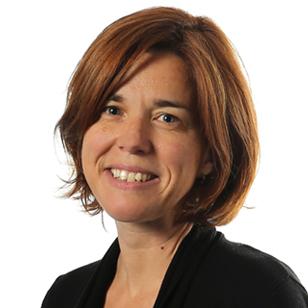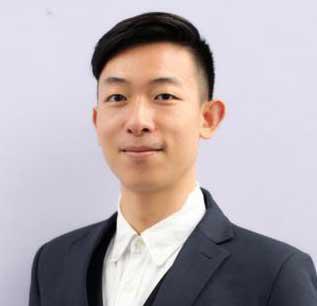Creating compelling stories with data: A spotlight interview with Roshna Abdulrahman
UNSSC’s UN Data Analytics Professional Certificate is designed to enhance participants’ ability to analyse, visualize, report and communicate data effectively. Rosha Adulrahman, who recently completed the Spring 2023 edition, currently works as an Information Management Associate with the UN Refugee Agency (UNHCR) in Iraq. Before joining UNHCR, she worked as a full-stack software engineer at a local company, creating custom websites and Android applications.
In this spotlight interview Abdulrahman shares her learning journey with UNSSC. She speaks with Itziar Arispe, Evaluation Learning Specialist, at UNSSC.
Arispe: What did you hope to gain from the UN Data Analytics Professional Certificate?
Abdulrahman: In our unit at UNHCR, we are encouraged to use new tools, take new courses, and learn new things because it helps our process of work.
My colleagues actually took the Data Visualization and Storytelling course with UNSSC. She had nothing but good things to say about it. I went and looked through the UNSSC catalogue, found the course, and read through the descriptions. I could see that it was exactly what I needed at this point in my career. This course is like a crash course on foundational knowledge and practical skills, specially designed for people working in the UN
Arispe: What are some of the most memorable parts that you recall from this learning experience?
Abdulrahman: It's a six-month course, but it seemed to pass by more quickly than one would expect. I have many fond memories. We studied a visualization about CO2 emissions that compared cattle and countries. This exercise underscored how powerful storytelling through visualization can be. The picture stuck in my head, and I do not think I will forget it anytime soon.
The second memorable part of the course was the group discussions and being able to solve practical problems together. I really enjoyed it because each one of us had a different background and therefore saw the problem in different ways.
Another nice part of the learning journey was winning an award at the end of the course. I was voted as ‘the inspirational speaker’ by my classmates. I was delighted and so thankful.
Arispe: You chose predictive analytics for your case study, which was really brave because it is a new and demanding specialty. Could you please share one or two takeaways that you were able to apply in your daily work?
Abdulrahman: My learning in predictive analytics has helped me a lot. My first takeaway is that it is important to clearly understand the problem before carrying out the study. Understanding the problem means we are halfway to finding the solution.
In the webinars, we studied different types of algorithms and how to know which one to use and how to plan before implementing our solutions. In the case study, we still encountered challenges in coming up with a hypothesis to check. At this point, I knew that having knowledge on the theories and algorithms is not enough. Understanding the problem and planning for it is a key part of the process. I am glad we were asked to provide a proposal before submitting our case study. We must submit a framework of our plan and get feedback from the mentors. If it was not there, I think it would have struggled with the rest of the process.
My second takeaway is not to expect things to go smoothly when working on a problem. For my case study, my hypothesis was disproven and that was a part of the learning and the research. Not everything is going to go the way I want it to and that is okay
Arispe: In this course, we’ve introduced a lot of tools. What is your perspective about this approach and the possibility of using different tools?
Abdulrahman: In the course, we used different tools, but that was not the focus. The focus was placed on our understanding. We know that tools come and go, but understanding how things work will definitely help. The general principles taught will continue to help us transfer what we have learnt from one tool to another tool. This course gives you many different tools and helps you understand how to work with the data. As participants we are now confident enough to know the tools and how to choose different ones based on our day-to-day work context.
Arispe: What would you say to anyone who is thinking about taking this course?
Abdulrahman: I found it quite surprising how accessible the course was, especially in the predictive analytics part, because that was completely new to me. The instructors were supportive when I didn’t understand and felt scared. Even though we struggled with the case study, they would reply to our questions and arrange extra question & answer sessions. They really supported us in understanding the material. I sent a thank you note to them because they really helped me.
I liked the open communication between the team and the participants. I made a lot of friends that I'm really thankful to have.
Arispe: How did you apply the knowledge you got from this course in your day-to-day work?
Abdulrahman: I work with data on a daily basis. As I mentioned earlier, the main reason behind me taking this course is that it is designed for people who work in the humanitarian context. Even if someone doesn't work in the Information Management unit, they can benefit from this course because it covers a lot of foundational topics that one might have forgotten or needs a refresher on.
I remember printing out the slides from the different sessions and sharing them with my colleagues and hearing them say, “wait, what is this?” or “oh, can I apply to this course?” I would reply to them and say the spring course is finished, but they can apply for the fall course.

